Braces in Tunis
Search and Compare the Best Clinics and Doctors at the Lowest Prices for Braces in Tunis
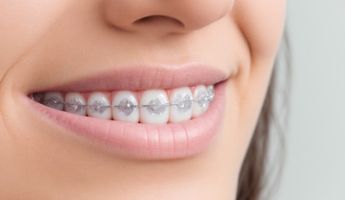
Find the best clinics for Braces in Tunis
No pricing info available
Vietnam offers the best prices Worldwide
Price: $ 1
From 37 verified reviews
Saoussen Saidani, 13 June 2020
My 12 year old daughter Lina has had surgery Pancreas tumorHeavy Operation which went very wellI thank all the staff of the Pasteur clinic for their hospitality and their hygiene ...I thank the doctors who attended the operation and in particular the surgeonAYADI Sofiene who accompanied us from the start for his professionalism as well as DR Walid Miraoui. The discovery of this tumor is done in a very short time a week to manage allThe support of Surgeon Ayadi Sofiene was really perfect as a parent we were reassured and above all in confidence.And especially I thank them for the moral support of My Daughter Lina who kept the smile until the end and who It is found in Total confidenceThank you so much for saving our childMr er Mrs Saidani
Compare Before & After Photos of _procedure_photos.phpBraces
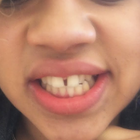
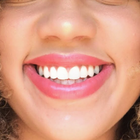
Front view
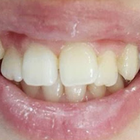
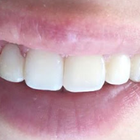
Front view
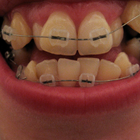
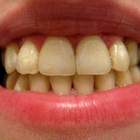
Front view
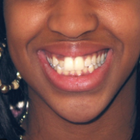
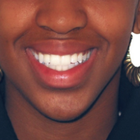
Front view
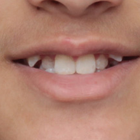
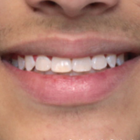
Front view
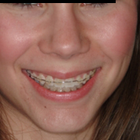
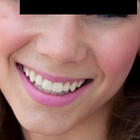
Front view
WHY US?
At Medijump, we're making medical easy. You can search, compare, discuss, and book your medical all in one place. We open the door to the best medical providers worldwide, saving you time and energy along the way, and it's all for FREE, no hidden fees, and no price markups guaranteed. So what are you waiting for?

Free

Best Price

Widest Selection

Risk-Free
What do you need to know about Braces in Tunis?
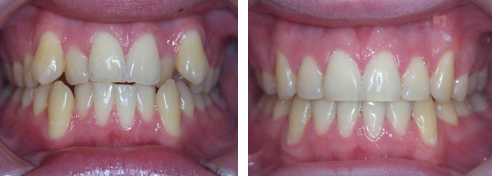
The Braces, commonly referred to as braces, is a mainstream dental technique designed to correct and align a person's dentition. Beneficial for both aesthetic and health reasons, the process involves repositioning misaligned teeth to improve your oral health and overall appearance. Aesthetic benefits aside, the Braces in Tunis also assists in enhancing oral hygiene, reducing discomfort when chewing, and even helping in speech correction in certain scenarios.
A thorough understanding of the Braces requires patient awareness regarding the longevity and complexity of the procedure. The dentist assesses the oral condition of an individual and plans a custom treatment accordingly. The treatment is usually achieved through subsequent periodic modifications that help guide teeth to their correct position over time. Your dentist unwaveringly monitors the Braces process, ensuring progress, and addressing any potential complications promptly.
There are several types of braces, including:
- Metal braces –are the traditional braces that come to mind for most people. Metal braces are made of metal brackets and an archwire is used to put pressure on your teeth and jawline, and O-rings are used to connect the brackets and the archwire.
- Ceramic braces – these are the same shape and size of metal braces. However, they are tooth-colored or clear, so they blend in with your teeth.
- Lingual braces – this type of braces are essentially the same as traditional metal braces, except that the wires and brackets are placed on the inside of your teeth.
- Clear aligners – mostly known as Invisalign (the most popular brand of clear aligners), these are removable, clear braces. This type of braces is best for people who only need minor corrections.
Braces are usually used during adolescence. However, more and more people are getting them later on in life.
What is the cost of Braces in Tunis?
The cost of Braces or braces in Tunis can vary based on a range of factors. These can include the specific type of braces chosen, the severity of the case, the expected duration of the treatment, and the dentist's experience and expertise. The costs can also be influenced by the geographical location. For example, the pricing for this dental intervention could be influenced by the local cost of living and local healthcare standards.
Apart from these specifics, your insurance coverage can also impact the final cost of the treatment. It's vital to verify with your insurance provider if orthodontic treatments like the Braces are covered in your plan and to what extent. Some plans cover only a portion of the treatment, while others may cover more. Speaking with your dentist about costs and payment plans is recommended for a smooth, transparent, and stress-free treatment experience
What does a Braces Procedure Involve?
The Braces involves multiple stages which start with an initial consultation at an accredited clinic to assess the dental needs and the approaches applicable to the case. The first step typically involves a meticulous examination, including an X-ray of your dentition to gain a complete understanding of your oral structure.
Subsequent to the initial consultation, the dentist crafts a specialized plan that outlines the sequence for the Braces. Once the plan is finalized and consented by the patient, implementation begins. The chosen type of braces are put on, which is a process that can last for a few hours. Post-installation, periodic adjustments at regular intervals are crucial to guide the teeth to the desired position gradually.
How Long Should I Stay in Tunis for a Braces?
As the Braces involves separate steps over an extended period, individual visits to your dentist or orthodontist are usually brief. Most patients can expect their initial fitting to take around one to two hours, with follow-up adjustment visits usually taking around 15 to 30 minutes.
While the procedure does not require any hospital stay and has minimal impact on your daily activities, it's crucial to note that a full Braces or braces treatment can often last between 18 to 24 months. Therefore, any decision to relocate during the treatment period should be carefully considered.
What's the Recovery Time for Braces in Tunis?
The concept of 'recovery time' for the Braces differs from other medical procedures. After your braces have been fitted or adjusted, you may experience general discomfort or difficulty in eating solid food. Usually, this discomfort subsides in about a week.
Contrarily, the overall process of correcting dental alignment using braces isn't quick. Depending on factors such as age, dental condition, and the extent of alignment required, the entire process may last anywhere from 1 to 3 years. As progress varies from case to case, it's best to discuss this with your healthcare provider to understand the timeline for your unique situation.
What's the Success Rate of Braces in Tunis?
The Braces enjoys a remarkable success rate. With high patient satisfaction levels reported worldwide, the process has helped many to achieve a desirable and healthier smile. The success of a Braces differs from case to case and depends on the patient's dental condition, age, and the type of braces used.
Another crucial factor that significantly influences the success of the Braces is patient compliance. Adherence to the guidelines provided by the orthodontist, including diligent oral hygiene, attending follow-up appointments, and ensuring regular adjustments are a few ways to optimize treatment outcomes and experience long-term success.
Are there Alternatives to *Treatment Procedure* in Tunis?
Yes, there available alternatives to the Braces in Tunis. Invisalign, for instance, is a modern orthodontic treatment that, unlike traditional metal braces, uses clear, removable aligners custom-fitted to your teeth. This alternative has grown popular due to its near-invisible appearance, making the treatment less noticeable.
Another alternative is the lingual braces; these are essentially similar to traditional braces but are placed on the inward-facing side of your teeth, making them less visible when you speak or smile. Dental surgery is a more drastic option, usually considered only in extreme cases when orthodontic treatments alone may not be sufficient.
It's important to discuss these alternatives with your dentist and consider all aspects such as costs, duration, maintenance, and visual appearance before deciding on the most suitable option for you.
What Should You Expect Before and After the Braces?
WebMD, could be a few years or indefinitely. Many patients have reported heightened self-confidence and improved oral health, making the Braces a worthy investment, which has made a mark in the field of Health and wellness.
What are some potential complications of the Braces in Tunis?
While the Braces is generally safe, like any dental procedure, there can be potential complications such as discomfort after adjustment, difficulty in brushing, loss of calcium from the teeth (tooth decalcification), and shortening of tooth roots. Rarely, patients may also experience allergic reactions to some of the metals used in braces.
Difficulty brushing could potentially lead to an accumulation of plaque, leading to gum disease if not adequately managed. As such, engaging in regular oral hygiene practices is of utmost importance. If you notice any of these issues, it is crucial to raise them with your dentist as soon as possible
What is the Importance of Aftercare for Braces?
Aftercare plays a crucial role in the success and longevity of the results of the Braces. Once the braces are removed, you're generally required to wear a retainer, which your dentist will custom-fit for you. A retainer helps in maintaining and stabilizing your teeth in their new position. Neglecting to wear the retainer can lead to your teeth shifting back to their original position, reducing the efficiency of the treatment.
In addition to using a retainer, maintaining good oral hygiene throughout the course of wearing braces and even afterward is necessary. Oral care routines such as brushing your teeth twice a day, flossing regularly, and having routine dental checkups will help ensure the health of your teeth and gums long after the Braces.
A well-nourished diet that limits sugary and starchy foods is recommended to further protect your oral health.
What are the Differences Between Adult and Children's Braces?
When comparing adult and children's braces, the primary distinction is rooted in the biological differences between kids and adults. As children’s jaws are still growing, it may be easier to influence the position and alignment of teeth, making children more responsive to the Braces.
However, with adults, the Braces might take longer as their jaws are already fully developed, and shifting teeth can be more complex. So, while braces are effective at any age, the duration of treatment may differ between adults and children.
Even though the Braces will differ among age groups, the critical point remains that adults, just like children, can still benefit from braces in terms of improved oral health, better dental function and enhanced self confidence, as mentioned by Mayo Clinic.
What are the Different Types of Braces?

There are several types of braces or Braces options available to cater to an array of needs and preferences. Traditional braces are the most popular, consisting of metal brackets that are glued to your teeth and linked with wires. They're now lighter and more flexible, reducing discomfort than previous versions.
Ceramic braces are similar to traditional ones, but they use tooth-colored or clear brackets to merge more naturally with your teeth. Lingual braces are metal braces placed on the inside of your teeth making them less noticeable. Lastly, Invisalign braces are clear, custom-fit removable aligners that are almost invisible, making them very popular among adults and teens who prioritize aesthetics.
It's important to remember that each type of Braces has its pros and cons: while some might be more aesthetically pleasing, others could be more efficient in treating complicated cases. Consulting with your dentist will allow you to make an informed decision based on your unique case.
What Kind of Maintenance Does Braces Require?
Maintenance during the Braces involves maintaining a high level of oral hygiene. Because braces can lodge food particles, frequent and thorough brushing is necessary to prevent plaque build-up leading to tooth decay or gum disease. The use of special brushes and floss can help get to those hard-to-reach places around brackets and wires.
Additionally, periodic appointments with your orthodontist are obligatory to keep track of progression and make necessary adjustments. Furthermore, certain types of food are to be avoided as they can break wires or brackets. These typically include hard or sticky foods like candy, popcorn, and nuts. Your dentist will provide specific guidelines customized to your Braces.
Whilst the information presented here has been accurately sourced and verified by a medical professional for its accuracy, it is still advised to consult with your doctor before pursuing a medical treatment at one of the listed medical providers
No Time?
Tell us what you're looking for and we'll reachout to the top clinics all at once
Enquire Now

Popular Procedures in Tunis
Prices Start From $1

Prices Start From $1

Prices Start From $48

Prices Start From $1

Prices Start From $1

Prices Start From $1

Prices Start From $11

Prices Start From $1

Prices Start From $45

Recommended Medical Centers in Tunis for Braces

- Interpreter services
- Translation service
- Religious facilities
- Medical records transfer
- Medical travel insurance
- Health insurance coordination
- TV in the room
- Safe in the room
- Phone in the room
- Private rooms for patients available

- Interpreter services
- Translation service
- Religious facilities
- Medical records transfer
- Medical travel insurance
- Health insurance coordination
- TV in the room
- Safe in the room
- Phone in the room
- Private rooms for patients available

- Interpreter services
- Translation service
- Religious facilities
- Medical records transfer
- Medical travel insurance
- Health insurance coordination
- TV in the room
- Safe in the room
- Phone in the room
- Private rooms for patients available

- Interpreter services
- Translation service
- Religious facilities
- Medical records transfer
- Medical travel insurance
- Health insurance coordination
- TV in the room
- Safe in the room
- Phone in the room
- Private rooms for patients available

- Interpreter services
- Translation service
- Religious facilities
- Medical records transfer
- Medical travel insurance
- Health insurance coordination
- TV in the room
- Safe in the room
- Phone in the room
- Private rooms for patients available

- Interpreter services
- Translation service
- Religious facilities
- Medical records transfer
- Medical travel insurance
- Health insurance coordination
- TV in the room
- Safe in the room
- Phone in the room
- Private rooms for patients available

- Interpreter services
- Translation service
- Religious facilities
- Medical records transfer
- Medical travel insurance
- Health insurance coordination
- TV in the room
- Safe in the room
- Phone in the room
- Private rooms for patients available

- Interpreter services
- Translation service
- Religious facilities
- Medical records transfer
- Medical travel insurance
- Health insurance coordination
- TV in the room
- Safe in the room
- Phone in the room
- Private rooms for patients available

- Interpreter services
- Translation service
- Religious facilities
- Medical records transfer
- Medical travel insurance
- Health insurance coordination
- TV in the room
- Safe in the room
- Phone in the room
- Private rooms for patients available

- Interpreter services
- Translation service
- Religious facilities
- Medical records transfer
- Medical travel insurance
- Health insurance coordination
- TV in the room
- Safe in the room
- Phone in the room
- Private rooms for patients available
Braces in and around Tunis
About Tunis
Tunis is the capital and the largest city of Tunisia and is the center of government and administration as well as the center of commercial and cultural activities. It is divided into two parts, the old city known as Medina and the new city or Ville nouvelle. Even though it is located on the southern shores of the Mediterranean Sea, the city does not have many beaches. Still, it has managed to attract millions of tourists in 2018 thanks to its rich history displayed in numerous ancient buildings. These buildings have an enchanting blend of North African and French Architecture that will leave anyone in awe. Many tourists come to see the Roman ruins of Carthage or to stroll around and shop in the Medina.
Tunis is known to have a high standard of healthcare, which attracts an increasing number of medical tourists each year. Many of the medical tourists come from other African countries that have an inferior healthcare system. However, the city’s excellent reputation in cosmetic surgery and dental treatment appeal to many patients from Europe, the Middle East, and Asia. The private medical centers are armed with the best equipment and English speaking staff. The Tunisian Ministry of Health regulates cosmetic and plastic surgeons to ensure that there is a high standard. In addition to exceptional healthcare, Tunis also offer attractive prices for medical treatment and the cost of living.
Popular Areas in Tunis
Although it is the largest city in Tunisia, Tunis can feel like a compact city and can be explored on foot. The city has a number of famous attractions that are always packed with tourists.
- Carthage was founded in the 9th century BC and was once a powerful empire of the Mediterranean as well as home to a wonderful civilization before being destroyed by the Romans in the Third Punic War. It was then to become an important Christian center until the Islamic invaders destroyed it. Today, the ruins have become a UNESCO World Heritage Site that tourists can visit.
- The Medina in Tunis is one of the most remarkable medieval medinas in North Africa. There are over 700 monuments within the area, from mosques to madrassas to historical places. It is easy to get lost in the impressive maze-like alleyways, but tourists are encouraged to admire the Islamic architecture and art or learn more about the city’s history. Tourists can also shop in one of the souqs selling everything from shisha pipes to shoes or enjoy one of the cafes.
- Sidi Bou Saïd is a picturesque cliff-top village with cobbled streets, blue-and-white walls, and glimpses of pristine blue waters. It is probably one of the most beautiful places in Tunisia. The beautiful architecture is a blend of the Ottoman and the Andalusian. It is now a sleepy fishing village perfect for anyone who wants to get away from busy city life. The village has been a gateway for artists, bohemians, and pilgrimage for centuries.
- Bardo Museum is the second-largest museum in Africa and the main attraction of this museum is the ancient Roman mosaics recovered from Carthage. The museum also exhibits Greek statues, artifacts of the region’s Berber, and the accomplishments of the Islamic culture in the country. Other than the exhibitions, the building itself is decorated in impressive historic Islamic decorative arts.
Weather and Climate in Tunis
Tunis has a hot-summer Mediterranean climate meaning the city enjoys warm and sunny weather all year round. The summer can be hot and dry because rain is very rare and the summer usually lasts from June to August and the average temperature is around 25 °C but can get as high as 40 °C. July and August are the high tourist season, especially at the beach resorts. The city begins to get rain in autumn, often accompanied by a short thunderstorm. The winter is the wettest season of the year because it can rain every two or three days and the temperature can drop to 7 °C in the morning and 16 °C in the afternoon. The rainfall decreases in spring, and in March, the temperature ranges between 8 °C to 24 °C and the sunshine usually becomes dominant in May.
Getting Around in Tunis
Tunis-Carthage International Airport is the main airport in Tunisia and the airport connects Tunis with other cities in the country as well as the rest of the world as it serves flights to and from the Middle East, Africa, and major Europeans countries. It is the hub for Tunisair, Tunisair Express, and Nouvelair, but there are not many budget airlines operating flights from the airport. To get to the city center from the airport, tourists can opt for a taxi or bus. The bus is operated by the SNT bus line and departs every 30 minutes. It is very affordable with a single ticket costing less than 1 TND. There is also a more luxurious and expensive bus line known as the TUT bus and the bus departs every 15 minutes. If you want a more private mode of transportation use an airport taxis and they are usually metered.
Tourists have plenty of options to get around Tunis. There is a tram system in the city with inexpensive tickets, usually around .48 TND. However, be aware that it can be packed during the rush hours. Taxis are a good option to get around, the taxis are metered, and the base fare is around .4 TND but can be much more expensive if you hail one off the street.
Tourist Visas in Tunis
Nationals of 97 countries including Australia, China, Singapore, the United States, and Russia can enter and stay in Tunis for up to 90 days without a visa. Other nationalities not listed in the visa exemption agreement are advised to check at their nearest Tunisia embassy or consulate. The country provides an online visa application to simplify the process of obtaining a visa to enter the country.
Additional Information
- Local Currency: Tunisian dinar (TND) is the official currency of Tunisia. 1 USD will get you 2.61 TND.
- Money & Payments: ATMs are widespread in Tunis. Credit Cards, particularly MasterCard and Visa, are accepted in most top-end restaurants, hotels, and shops. Tipping is by no means mandatory but will be greatly appreciated.
- Local Language: Arabic is the official language and French is very common. English is not widely spoken except in tourist areas and hospitals.
- Local Culture and Religion: Most of the population follows Islam, but there are small groups of Christian and Jews.
- Public Holidays: The city celebrates major nationals and Islamic holidays such as Independence Day, Eid Al-Fitr, and Prophet Mohammed’s Birthday.
Popular Searches
- Plastic Surgery in Thailand
- Dental Implants in Thailand
- Hair Transplant in Thailand
- Breast Augmentation Thailand
- Gastric Sleeve in Thailand
- Gender Reassignment Surgery in Thailand
- Laser Hair Removal in Bangkok
- Botox in Bangkok
- Dermatology in Bangkok
- Breast Augmentation in Bangkok
- Coolsculpting in Bangkok
- Veneers in Turkey
- Hair Transplant in Turkey
- Rhinoplasty in Turkey
- Stem Cell Therapy in Mexico
- Rhinoplasty in Mexico
- Liposuction in Mexico
- Coolsculpting in Tijuana
- Rhinoplasty in Korea
- Scar Removal in Korea
- Gastric Sleeve in Turkey
- Bone Marrow Transplant in India
- Invisalign in Malaysia
- Plastic Surgery in the Dominican Republic
- Tummy Tuck in the Dominican Republic
- Plastic and Cosmetic Surgery in Poland
- Rhinoplasty in Poland
- Hair Implant in Poland
- Dental Implants in Poland
- IVF in Turkey
